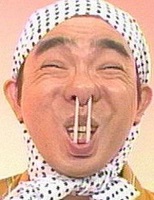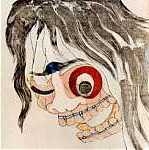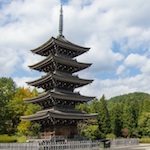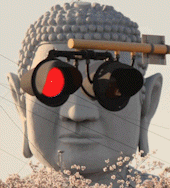| Hot Topics | |
|---|---|
"Japan's Abe Is the World's Best Leader"
Re: "Japan's Abe Is the World's Best Leader"
Lower wages, higher consumption tax, in a place that routinely had major cities in the top 10 most expensive places in the world listing. (until this year when the cheaper yen made everything more affordable...WTF?)
-

matsuki - Posts: 16047
- Joined: Wed Feb 02, 2011 4:29 pm
- Location: All Aisu deserves a good bukkake
Re: "Japan's Abe Is the World's Best Leader"
Yokohammer wrote:Thinking about this ...
At a time when such a surprising number of Japanese are actually living below the poverty line, is any kind of consumption tax increase really a good idea? The more I think about it, the more it looks like a very shortsighted move.
Japan's economic troubles hit single-parent families and children especially hard
Tsss... Let them eat cake...
-

Coligny - Posts: 21824
- Images: 10
- Joined: Sat Jan 17, 2009 8:12 pm
- Location: Mostly big mouth and bad ideas...
Re: "Japan's Abe Is the World's Best Leader"
matsuki wrote:until this year when the cheaper yen made everything more affordable
Too bad that doesn't work when you're being paid in yen.
Faith is believing what you know ain't so. -- Mark Twain
-

Samurai_Jerk - Maezumo
- Posts: 14387
- Joined: Mon Feb 09, 2004 7:11 am
- Location: Tokyo
Re:
Samurai_Jerk wrote:matsuki wrote:until this year when the cheaper yen made everything more affordable
Too bad that doesn't work when you're being paid in yen.
Exactly...the Abe-beat down on the Yen has benefited the average Daisuke how?
-

matsuki - Posts: 16047
- Joined: Wed Feb 02, 2011 4:29 pm
- Location: All Aisu deserves a good bukkake
Re: "Japan's Abe Is the World's Best Leader"
The Bank of Japan Lays an Egg
Japan’s central bank loses credibility as it tries to create inflation
http://www.wsj.com/articles/the-bank-of ... 1450652587
Japan’s central bank loses credibility as it tries to create inflation
The Bank of Japan announced Friday a change in its asset-buying program to include new exchange-traded funds, longer-dated bonds and more risky assets. But if Governor Haruhiko Kuroda thought the new measures would reassure markets that the BOJ has enough firepower to reach its inflation target, he was soon disabused. Stocks fell in Tokyo and the yen strengthened.
The episode highlights the BOJ’s credibility problem. When Mr. Kuroda took the helm in March 2013, he claimed that the BOJ had the power to stop deflation but hadn’t used it. Last year he predicted that inflation wouldn’t fall below 1% again in his lifetime. It did so a few months later, despite asset-buying of ¥80 trillion ($660 billion) a year, including virtually all new government bonds. That represents a more radical expansion of the central bank’s balance sheet than any of the U.S. Federal Reserve’s quantitative-easing programs.
On current trends, the BOJ has little chance of meeting its 2% inflation target in the next couple of years. The latest Tankan survey shows Japanese firms expect prices to rise 1% next year, down from the 1.2% expectation they reported in September.
Failure to reach the target creates pressure for Mr. Kuroda to undertake even larger asset purchases. But he and the Shinzo Abe administration seem to realize that this would be ineffective and difficult to implement. And if it further weakened the yen, tensions with the U.S., China and other trading partners would rise.
The new measures also raise concerns about political interference in business decision making. The BOJ said it would buy funds comprised of companies “proactively making investment in physical and human capital.” The government has been pressuring managers to invest more and raise wages.
It appears the BOJ plans to buy funds based on the JPX-Nikkei Index 400, which is based on corporate governance and profitability, so the policy seems confused. Using the central bank’s powers to promote the government’s political goals also runs the risk of misallocating resources, which would harm growth. It sets a precedent that could undermine the bank’s independence.
Japan’s companies don’t want to borrow and invest because of the country’s slow growth potential, which the BOJ estimates at 0.5%. Monetary policy can’t do much if Shinzo Abe fails again to undertake deregulation and tax reform to unleash competition. The disappointment with Mr. Kuroda’s monetary tweaks is a reminder that Japan’s economic fate rests with the Prime Minister, not the central bank.
http://www.wsj.com/articles/the-bank-of ... 1450652587
•I prefer liberty with danger to peace with slavery.•
-

Mike Oxlong - Posts: 6818
- Joined: Wed Oct 20, 2004 5:47 pm
- Location: 古き良き日本
Re: "Japan's Abe Is the World's Best Leader"
and krugman, who is the very man to agitate this inflation policy, continue to be an economist with an innocent air.
-

Takechanpoo - Posts: 4294
- Images: 4
- Joined: Fri Oct 06, 2006 10:47 pm
- Location: Tama Prefecture(多摩県)
Re: "Japan's Abe Is the World's Best Leader"
egg? an ostrich egg maybe....


-

matsuki - Posts: 16047
- Joined: Wed Feb 02, 2011 4:29 pm
- Location: All Aisu deserves a good bukkake
Re: "Japan's Abe Is the World's Best Leader"
◎慰安婦問題最終合意の次は…
安倍首相が画策する「靖国神社A級戦犯分祀」
http://www.nihonjournal.jp/web/jituwa_201603/index.html
"the next is that what Abe is planing is a separation of worship of class A war criminals in yasukuni!"
in this tabloid article, it seems to be written that Abe and pro-merica bureaucrats are negotiating the separation with yasukuni ppl.
"in japan, real journalism is only seen in tabloids"
「実際に安倍首相はA級戦犯を分祀したい考えを持っています。高村正彦・自民党副総裁らに靖国関係者と調整させているのですが、靖国側に拒否され続けているのです。
http://npn.co.jp/article/detail/85081662/
it seems like yasukuni side has been rejecting the demand of separation from Abe and the closers.
well.. its free for you to believe tabloids articles or not.
Last edited by Takechanpoo on Thu Jan 21, 2016 12:58 pm, edited 2 times in total.
-

Takechanpoo - Posts: 4294
- Images: 4
- Joined: Fri Oct 06, 2006 10:47 pm
- Location: Tama Prefecture(多摩県)
Re: "Japan's Abe Is the World's Best Leader"
Takechanpoo wrote:◎慰安婦問題最終合意の次は…
安倍首相が画策する「靖国神社A級戦犯分祀」
http://www.nihonjournal.jp/web/jituwa_201603/index.html
"the next is that what Abe is planing is a separation of worship of class A war criminals in yasukuni!"
in this tabloid article, it seems to be written that Abe and pro-merica bureaucrats are negotiating the separation with yasukuni ppl.
"in japan, real journalism is only seen in tabloids"
If that is true, that would be very good!
“To learn who rules over you, simply find out who you are not allowed to criticize.”
“I know not with what weapons World War III will be fought, but World War IV will be fought with sticks and stones.” ― Albert Einstein
-

Russell - Maezumo
- Posts: 8580
- Images: 1
- Joined: Fri Aug 13, 2010 11:51 pm
Re: "Japan's Abe Is the World's Best Leader"
Russell wrote:Takechanpoo wrote:◎慰安婦問題最終合意の次は…
安倍首相が画策する「靖国神社A級戦犯分祀」
http://www.nihonjournal.jp/web/jituwa_201603/index.html
"the next is that what Abe is planing is a separation of worship of class A war criminals in yasukuni!"
in this tabloid article, it seems to be written that Abe and pro-merica bureaucrats are negotiating the separation with yasukuni ppl.
"in japan, real journalism is only seen in tabloids"
If that is true, that would be very good!
I agree. This is the best solution.
Unless, of course, all the politicians then go to pay their respects at the new shrine where the class A war criminals are interred rather than Yasukuni.
~ Tapatalking ~
_/_/_/ Phmeh ... _/_/_/
-

Yokohammer - Posts: 5090
- Joined: Tue Sep 30, 2008 6:41 pm
- Location: South of Sendai
Re:
Yokohammer wrote:Russell wrote:Takechanpoo wrote:◎慰安婦問題最終合意の次は…
安倍首相が画策する「靖国神社A級戦犯分祀」
http://www.nihonjournal.jp/web/jituwa_201603/index.html
"the next is that what Abe is planing is a separation of worship of class A war criminals in yasukuni!"
in this tabloid article, it seems to be written that Abe and pro-merica bureaucrats are negotiating the separation with yasukuni ppl.
"in japan, real journalism is only seen in tabloids"
If that is true, that would be very good!
I agree. This is the best solution.
Unless, of course, all the politicians then go to pay their respects at the new shrine where the class A war criminals are interred rather than Yasukuni.
Yep, don't put that beyond them...
“To learn who rules over you, simply find out who you are not allowed to criticize.”
“I know not with what weapons World War III will be fought, but World War IV will be fought with sticks and stones.” ― Albert Einstein
-

Russell - Maezumo
- Posts: 8580
- Images: 1
- Joined: Fri Aug 13, 2010 11:51 pm
Re: "Japan's Abe Is the World's Best Leader"
This may make some of the foreigners happy but it doesn't resolve an issue that many Japanese have with Yasukuni, which is that offical visits by politicans site violate the separation of religion and state as written in articles 20 and 89 of the Japanese constitution.
https://en.wikipedia.org/wiki/Controver ... uni_Shrine
One controversy of political visits to the shrine is the constitutionality of visits by the Prime Minister. In the Japanese Constitution, the separation of state and religion is explicit. Because the clause was written for the express purpose of preventing the return of State Shintoism, many question the constitutionality of the Prime Minister visiting Yasukuni Shrine. Often the first question Japanese Prime Ministers are asked by journalists after a visit is, "Are you here as a private person or as Prime Minister?" In addition, whether the Prime Minister has signed the visitors' book indicating the position of signatory as shijin (私人?, private person) or shushō (首相?, Prime Minister) is diligently reported. All Prime Ministers have so far stated that their visit was private. However, although some leave the signature section blank or sign it as shijin, others sign it as shushō. The issue is somewhat different than that of visits by the German Chancellor to the Holocaust Memorial, which are explicitly made in the context of a state visit. Prime Minister Koizumi recently gave a somewhat cryptic answer, stating that he visited the shrine as Junichiro Koizumi, the Prime Minister of Japan. Some consider such statement as a move towards making visits somewhat official; others consider that it is pointing out that the whole issue of shijin vs shushō is somewhat meaningless. Some journals and news reports, such as one made by Kyodo News Agency on August 15, 2006, question whether in the case of Koizumi's visits, which are consistently claimed by Koizumi to be private, can be considered individual in nature when they are part of a campaign pledge, which in nature is political. Currently, most of the Japanese public and most jurists have agreed that there have been no constitutional violations yet.
https://en.wikipedia.org/wiki/Controver ... uni_Shrine
-

dimwit - Maezumo
- Posts: 3827
- Images: 3
- Joined: Tue Jun 01, 2004 11:29 pm
Re: "Japan's Abe Is the World's Best Leader"
After Japan's 25 yrs of treading water...
Japanese PM Abe Aims His Next Arrow At The Global Stage
http://www.ft.com/cms/s/0/0de1f06a-bcee ... z3xXdNTgws
You do not have the required permissions to view the files attached to this post.
-

Taro Toporific - Posts: 10021532
- Images: 0
- Joined: Tue Sep 10, 2002 2:02 pm
Re: "Japan's Abe Is the World's Best Leader"
◎慰安婦問題最終合意の次は…
安倍首相が画策する「靖国神社A級戦犯分祀」
http://www.nihonjournal.jp/web/jituwa_201603/index.html
"the next is that what Abe is planing is a separation of worship of class A war criminals in yasukuni!"
in this tabloid article, it seems to be written that Abe and pro-merica bureaucrats are negotiating the separation with yasukuni ppl.
"in japan, real journalism is only seen in tabloids"
「実際に安倍首相はA級戦犯を分祀したい考えを持っています。高村正彦・自民党副総裁らに靖国関係者と調整させているのですが、靖国側に拒否され続けているのです。
http://npn.co.jp/article/detail/85081662/
it seems like yasukuni side has been rejecting the demand of separation from Abe and the closers.
well.. its free for you to believe tabloids articles or not.
-

Takechanpoo - Posts: 4294
- Images: 4
- Joined: Fri Oct 06, 2006 10:47 pm
- Location: Tama Prefecture(多摩県)
Re: "Japan's Abe Is the World's Best Leader"
I don't really buy it, but it might not be a bad idea given the increase in Asian tourism to Japan. Done well, it could be a good source of revenue for the shrine, with some well done mock ups of the International Military Tribunal and of course, the centrepiece of any good Pacific War memorial: the gallows, perhaps with a nice photo exhibit of the neck stretchers lying in penance. At any rate, it should make for more unintended neo-con absurdist theatre.
Allowing that Tojo and a bunch of others besides Yamashita (the Butcher of Bataan!!) and Abe's grandfather were probably railroaded.
Allowing that Tojo and a bunch of others besides Yamashita (the Butcher of Bataan!!) and Abe's grandfather were probably railroaded.
-

kurogane - Maezumo
- Posts: 4483
- Joined: Fri Aug 04, 2006 5:24 pm
- Location: Here
Re: "Japan's Abe Is the World's Best Leader"
They should just pave over it and turn it into a building full of maid cafes and heated toilet seat retailers. Give the people more of what they want!
-

matsuki - Posts: 16047
- Joined: Wed Feb 02, 2011 4:29 pm
- Location: All Aisu deserves a good bukkake
Re: "Japan's Abe Is the World's Best Leader"
and there is another speculation that Abes wifes visit to yasukuni just after the agreement of comfort women is a negotiating the separation as Abes substitute, not an excuse for j-right wingers.
http://www.japantimes.co.jp/news/2015/1 ... qChGL-9FmM
http://www.japantimes.co.jp/news/2015/1 ... qChGL-9FmM
-

Takechanpoo - Posts: 4294
- Images: 4
- Joined: Fri Oct 06, 2006 10:47 pm
- Location: Tama Prefecture(多摩県)
Re: "Japan's Abe Is the World's Best Leader"
Lifting the lid on one of the most influential, and secretive, political organisations in Japan
Nippon Kaigi, or 'Japan Conference', has an impressive list of members and aims to reshape Japanese politics and policies, and Lateline gains rare access to this secretive and ultra-conservative organisation.
http://mobile.abc.net.au/news/2015-12-0 ... l,/6996204
•I prefer liberty with danger to peace with slavery.•
-

Mike Oxlong - Posts: 6818
- Joined: Wed Oct 20, 2004 5:47 pm
- Location: 古き良き日本
Re: "Japan's Abe Is the World's Best Leader"
Ok, but can they shapeshift into human lizzard hybrids ?
-

Coligny - Posts: 21824
- Images: 10
- Joined: Sat Jan 17, 2009 8:12 pm
- Location: Mostly big mouth and bad ideas...
Re: "Japan's Abe Is the World's Best Leader"
trump likes abe...
-

Takechanpoo - Posts: 4294
- Images: 4
- Joined: Fri Oct 06, 2006 10:47 pm
- Location: Tama Prefecture(多摩県)
Re: "Japan's Abe Is the World's Best Leader"
A surprisingly pointed view in Bloomberg View, looking at the planned constitutional changes that are being obfuscated by the brouhaha over Article 9.
Is Japan Asia's Next Autocracy?
Is Japan Asia's Next Autocracy?
...
The Liberal Democratic Party of Japan (LDP), which is one of the most misnamed political parties in existence, has governed Japan for most of its postwar history, with only the occasional brief interruption. A substantial chunk of the party is philosophically, organizationally and often genetically descended from the political class of Japan’s militarist period. As one might expect, it didn't completely internalize the liberal values that the U.S. imposed on the country during the American occupation. That faction, once a minority, now appears to be dominant within the party.
The LDP is now campaigning to scrap the U.S.-written constitution, and replace it with a draft constitution. In a booklet explaining the draft, the LDP states that "Several of the current constitutional provisions are based on the Western-European theory of natural human rights; such provisions therefore [need] to be changed." In accordance with this idea, the draft constitution allows the state to restrict speech or expression that is "interfering [with] public interest and public order.” The draft constitution also repeals the clause that prohibits the state from granting “political authority” to religious groups -- in other words, abandoning the separation of church and state.
...
-

Yokohammer - Posts: 5090
- Joined: Tue Sep 30, 2008 6:41 pm
- Location: South of Sendai
Re: "Japan's Abe Is the World's Best Leader"
That sounds like some very scary stuff. Let us know if you come across any similar articles in Japanese. I have some friends I'd like to show.
-

Samurai_Jerk - Maezumo
- Posts: 14387
- Joined: Mon Feb 09, 2004 7:11 am
- Location: Tokyo
Re: "Japan's Abe Is the World's Best Leader"
http://dot.asahi.com/wa/2016022500101.html
http://blogos.com/article/148845/
the latter is well-balanced one by one of my favorite j-intellectuals.
but how many guys among you gaijin dudes can read that level japanese articles or books?
http://blogos.com/article/148845/
the latter is well-balanced one by one of my favorite j-intellectuals.
but how many guys among you gaijin dudes can read that level japanese articles or books?
-

Takechanpoo - Posts: 4294
- Images: 4
- Joined: Fri Oct 06, 2006 10:47 pm
- Location: Tama Prefecture(多摩県)
Re: "Japan's Abe Is the World's Best Leader"
Takechanpoo wrote:http://dot.asahi.com/wa/2016022500101.html
http://blogos.com/article/148845/
the latter is well-balanced one by one of my favorite j-intellectuals.
A bit like unicorns...
-

Coligny - Posts: 21824
- Images: 10
- Joined: Sat Jan 17, 2009 8:12 pm
- Location: Mostly big mouth and bad ideas...
Re: "Japan's Abe Is the World's Best Leader"
Takechanpoo wrote:http://dot.asahi.com/wa/2016022500101.html
http://blogos.com/article/148845/
the latter is well-balanced one by one of my favorite j-intellectuals.
but how many guys among you gaijin dudes can read that level japanese articles or books?
Interesting. Thanks Take-chan.
Both articles deal mostly with the "state of emergency" measures, and that is certainly a major worry, but there's more to be concerned about. Freedom of speech and of the press, for example.
Speaking of which, and of Mr. Tahara who wrote the first article you posted ... (on to the next post) ...
Last edited by Yokohammer on Wed Mar 02, 2016 5:44 pm, edited 1 time in total.
-

Yokohammer - Posts: 5090
- Joined: Tue Sep 30, 2008 6:41 pm
- Location: South of Sendai
Re: "Japan's Abe Is the World's Best Leader"
Related to the recent press intimidation and censorship issues, this caught my attention on the tube the other night.
TV journalists slam minister’s threat against ‘biased’ programs, fear media self-censorship
Just in case you can't get past the paywall I'll bend the rules a little and quote the entire (short) article:
The idea that any political party can judge political fairness is totally insane to begin with ... and it goes downhill from there.
TV journalists slam minister’s threat against ‘biased’ programs, fear media self-censorship
Just in case you can't get past the paywall I'll bend the rules a little and quote the entire (short) article:
TV journalists across networks are raising voices against recent remarks by communications minister Sanae Takaichi that the government might suspend broadcasters’ operations if they air programs it considers politically biased.
Newscasters including Soichiro Tahara, Shuntaro Torigoe and Shigetada Kishii held a news conference in Tokyo on Monday in which they vehemently criticized the comments by the minister.
On Feb. 8, Takaichi, a conservative Liberal Democratic Party lawmaker who is seen as close to Prime Minister Shinzo Abe, told the Diet that the government is legally authorized to order stations and networks to cease broadcasting if they ignore officials who tell them to remain “politically neutral,” as stipulated in the broadcasting law. Takaichi has repeated similar comments since.
“The airwaves belong to the people, not a government ministry,” Torigoe told the news conference. “Takaichi’s comments are a form of intimidation. Behind them are arrogant attitudes toward the media by the Abe administration.”
Veteran journalist Tahara cited a recent series of resignations of newscasters who have made comments critical of Abe as a possible sign of self-censorship by the media.
“It might be a coincidence, but, after seeing hard-core journalists quit in succession, I feel the TV networks are engaged in self-censorship,” Tahara said. “We should fight against (government) pressures by all means.”
Kishii, an anchor of the TBS evening news program “News 23,” reiterated his stance that the government should be hands-off regarding TV programming. Kishii, a former Mainichi Shimbun writer, will be replaced in April. Kishii expressed opposition to the contentious security bills before they cleared the Diet last September and called on fellow opponents to speak up. He came under heavy criticism, especially from the right, raising speculation that his on-air comments led to the network’s decision to sack him.
“It is the public and the media to judge political neutrality or justness,” he said. “It should never be a matter for the administration to judge.”
The idea that any political party can judge political fairness is totally insane to begin with ... and it goes downhill from there.
-

Yokohammer - Posts: 5090
- Joined: Tue Sep 30, 2008 6:41 pm
- Location: South of Sendai
Re: "Japan's Abe Is the World's Best Leader"
Yokohammer wrote:Just in case you can't get past the paywall I'll bend the rules a little and quote the entire (short) article:
That one should never be a problem. You are at your limit? Browse in private mode, or just be a good boy and eat up all your cookies.
-

wagyl - Maezumo
- Posts: 5950
- Images: 0
- Joined: Thu Mar 17, 2011 11:08 pm
- Location: The Great Plain of the Fourth Instance
Re: "Japan's Abe Is the World's Best Leader"
wagyl wrote:Yokohammer wrote:Just in case you can't get past the paywall I'll bend the rules a little and quote the entire (short) article:
That one should never be a problem. You are at your limit? Browse in private mode, or just be a good boy and eat up all your cookies.
Yes. You know that, and I know that, but it might not be safe to assume that everyone does. Or that they could be bothered even if they did.
-

Yokohammer - Posts: 5090
- Joined: Tue Sep 30, 2008 6:41 pm
- Location: South of Sendai
Re: "Japan's Abe Is the World's Best Leader"
What about NHK? Lately they have been running pieces about happy FGs on those slave visas raving about how great it is to have that job/visa. Also, today, they have been running a clip of Trump saying "If we get into a war Japan can't help us".
Politically neutral as long as it pushes the LDP agenda.
Politically neutral as long as it pushes the LDP agenda.
-

wuchan - Posts: 2015
- Joined: Tue Jun 17, 2008 11:19 pm
- Location: tied to a chair in a closet at the local koban
Re: "Japan's Abe Is the World's Best Leader"
Well, well ... preparing to buddy it up with the leader of one of the world's most corrupt nations (again).
Abe arranging for Mugabe, 92, to visit Japan for late-March summit ahead of Kenya TICAD
No shit.
Abe arranging for Mugabe, 92, to visit Japan for late-March summit ahead of Kenya TICAD
Inviting him to Japan could raise doubts about Abe’s policy of promoting universal values such as freedom and democracy.
No shit.
-

Yokohammer - Posts: 5090
- Joined: Tue Sep 30, 2008 6:41 pm
- Location: South of Sendai
Who is online
Users browsing this forum: No registered users and 8 guests

